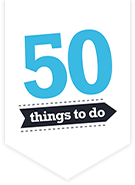You can download the full report here.
We are excited to share the new Child of the North report in collaboration with Centre for Young Lives.
The report, "An evidence-based approach to supporting children in the preschool years", is the ninth in a series of monthly Child of the North reports being published throughout 2024 to support the new Labour Government in its ambitious vision for children and to show how putting the interests and life chances of children at the heart of policy making and delivery is crucial to Britain's future success. This report focuses on the need for a culture of connectivity across health sectors and education to support children in having the best start to life.
The report highlights the decline in children's development due to current systems of preschool provision:
- In 2022/23, a third of children were not considered school ready, with 45% of children receiving Free School Meals not school ready.
- Over half of children who were not school ready performed below expected in their Key Stage 1 reading assessment.
- An analysis of children deemed not school ready shows that they were nearly 2.5 times more likely to be persistently absent from school than their peers.
- Children who are not school ready are around three times more likely to be NEET (Not in Education, Employment or Training) by the ages of 16-17.
- The percentage of school ready children varies across the country, from just 59% school readiness in Manchester to 84% in London.
The report states its recommendations in three clear points:
- Investment in Early Childhood Education Programmes that support the holistic needs of families in educational settings within the most disadvantaged areas. There is evidence to show that disadvantaged children who receive early educational intervention from infancy to the age of five have better cognitive and academic outcomes, including positive effects on children’s language, literacy, and socio-emotional development. These programmes can also help ensure access to comprehensive health and nutrition services for young children, including regular health screenings, immunisations, and nutrition assistance.
- Improvements and extended training opportunities for professionals and families. Evidence shows that home visits by trained professionals to first-time, low-income parents leads to better pre- and post-natal health, fewer childhood injuries, increased intervals between births, and improved school readiness. There is also good evidence to support the implementation of positive parenting programmes that provide a multi-level system of parenting and family support. These programmes have been shown to improve child behaviour and reduce parental stress and conflict, which benefits children's overall development.
- Connecting systems more effectively through shared information to provide more integrated support throughout a child’s educational journey. Public services, such as education, health, and social care, often work in silos. As a result, health information, for example health conditions, or birth factors that may facilitate earlier identification of problems, is rarely communicated directly to nurseries and preschools. Better sharing of information would connect public services, speeding up provision of support, and reducing structural inequalities. Collaborative working through improved information sharing would also allow professionals to develop practical and quick solutions to everyday issues and barriers that children may face.
The report spotlights our very own 50 Things to Do Before You're Five on Pages 24 and 31-32, as an innovative programme with a holistic approach to improving life chances for children in areas of deprivation. The report reads '50 Things To Do Before You’re Five is an initiative that provides ideas for fun, low or no-cost activities for families with young children that aim to help children develop the skills, language, and resilience needed for starting school and beyond. It can also be used by nurseries, childminders, schools, health teams, cultural settings, and community organisations, or by anyone who wants to improve outcomes for young children.'
We are so proud to be amongst professionals who prioritise children's health and education from the very start of life, this report is a step forward into improving outcomes and achieving a country that works for all children and young people.
SHARE ON SOCIAL MEDIA
